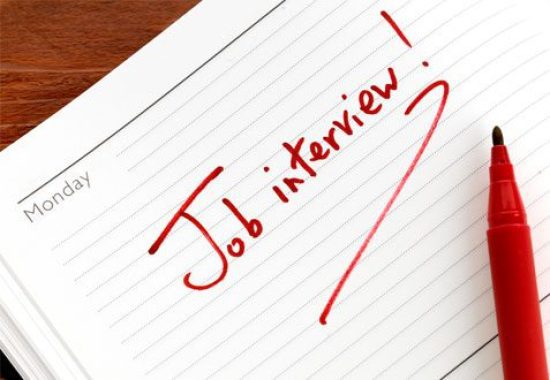
Job hunting while you’re still employed in your current role isn’t the easiest of tasks. Sneaking away on your lunch break to check your emails, getting home after a long day and trawling through endless job descriptions and filling in what feels like hundreds of application forms can feel like a full-time job in itself!
When you finally get that phone call inviting you to an interview, excitement can quickly turn into panic upon realising that you need some time off to attend it. If the opportunity is a good one, don’t miss out simply because you feel guilty or awkward taking time away from your current role to meet with your potential new employer. Your career is important, so you should take any chance you can to move forward.
However, it’s best to exercise discretion; you’re bound to ruffle feathers if your current boss finds out you’ve been going to interviews on company time, and if you don’t get a new role as quickly as you’d hoped, you could end up stuck in quite an uncomfortable situation. The key to having your cake and eating it is to keep things on the down-low. Don’t tell anyone the real reason you’re taking time off and don’t raise any suspicions.
There’s a knack to getting time off work for interviews, here’s some advice to bear in mind:
OK, so a little white lie here and there rarely comes back to bite you. However, if you’re trying to wangle time off work for your interview, try not to use a false excuse that could raise eyebrows or unravel spectacularly. For example, saying that you’re sick or that a family member died is a big no-no; a little digging or slip of the tongue could see your fibs fall down around you, it’s not worth it.
Making up an excuse as to why you’re late for work or why you have to leave early can be a risk too. Remember that, even though you’re planning to leave, this is still your place of work and you have no idea how much longer you’ll be there, you need to keep bosses sweet. So, any excuses that make you seem like you’re not committed to your role, unprofessional or irresponsible just won’t do. Hangovers, sleeping through alarms and fictional traffic nightmares might land you in hot water.
This may seem like the obvious option but this should, if anything, be your very last resort. That being said, it’s best to avoid this at all costs. You don’t want to tarnish your attendance record at your current job, plus who knows how many interviews you’ll need to attend – you can’t call in sick every time! Additionally, you run the risk of getting caught out; a colleague or even your manager might catch you out and about, even in the most unlikely of places. Not many people who claim to be dying of flu tend to wander the street in their best suits!

If you need to book a holiday or a half day to attend an interview, you’re well within your rights to the time off and your employer doesn’t need to know all the ins and outs. So, in short don’t try to cover yourself with an overly elaborate excuse! Most of the time “I have an appointment” is more than enough information to justify the time off. If your employer wants to know more then tell them that you’re visiting the doctor, dentist or hospital, even accountancy, banking or other financial appointments should suffice, too.
Sometimes it’s possible to attend a lunchtime interview. To cover yourself, say that a family member or friend is visiting and you’ll be taking an extended lunch – to sweeten the deal even more, offer to come in earlier or stay later to make up the time.
Really, the best thing to do is to take a full day’s holiday if you can. We know that you’d rather use your entitlement for something much more fun, but if you do well at the interview and land the job of your dreams, it’ll be worth it! If you have to take flexi-time or a half day, try to give your employer as much notice as possible. Also, make sure that you’ll be leaving yourself enough time to get to and from your interview.
These days recruiters tend to be quite understanding of the demands of working life. It’s not always that easy to get time off. Therefore, when making interview arrangements with a prospective employer, try to arrange an interview outside of working hours. They may not be able to accommodate this request (they’re probably just as busy as you are), but you won’t burn any bridges by asking. In fact, they’ll be more likely to see you as a responsible and committed employee – bonus!
If they can’t meet your request, then be smart with your interview time. It’s likely that it will be easier for you to get time off earlier or later in the day, or even at lunchtime, so bear this in mind.
You may not feel entirely comfortable doing so, but taking time off from work to attend an interview could change your life. As long as you’re smart, careful and keep your cards close to your chest when it comes to the reason why you’re taking time off, you should be in the clear.
Now that you know how to get time off work for your interview, don’t forget to check out our top interview advice to ensure you are well-prepared – good luck!
For more articles like this, visit our blog.
Follow us on Twitter, LinkedIn and Facebook for business insights, interview tips, advice and career opportunities.